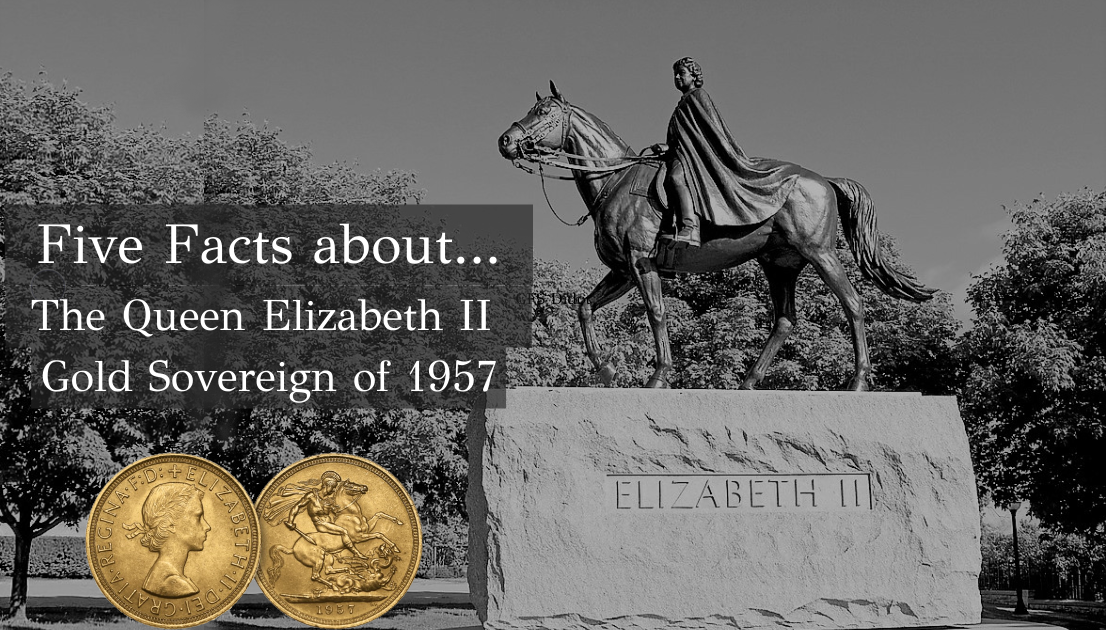
We’re now half-way through our five facts about the Twelve Greatest Sovereigns blog series, so lets look at the Queen Elizabeth II Gold Sovereign of 1957…
The first sovereign of Her Late Majesty’s reign.
With the provisions of post-war austerity still in force in 1953, no gold coins were issued for Her Majesty’s coronation. It was not until the year 1957 that the first gold sovereigns were struck with our new monarch’s portrait.
It is a one-year issue.
The 1957 gold sovereign is a type that was only issued for one year as it features a finely milled edge with 168 grains (ridges), whereas all other issues of Queen Elizabeth II have just 108 grains.
The first sovereign portrait designed by Mary Gillick.
The 1957 gold sovereign features the coronation portrait of Her Majesty that had appeared on her regular coinage since 1953 and would continue to be used until 1970. This portrait shows a youthful Queen with her hair tied in a fillet and wreath. It is of great collector interest as it is the only one of Her Majesty’s portraits that shows her without a diadem or crown.
The reverse features the world’s most widely recognised coin designs.
The reverse design is the classic interpretation of St George slaying the dragon, created by a brilliant young Italian engraver, Benedetto Pistrucci, for the first modern sovereigns of 1817. This beautiful design remains on our gold sovereigns today, almost 200 years later, making it one of the world’s most widely recognised coin designs.
The sovereign was struck primarily for sale into global gold bullion markets.
Coupled with the fact that this is also the very first year of the Queen’s gold sovereign, it is easy to see why this coin is so important and sought-after: it is a vital first year British gold sovereign issue. No Proofs were struck in this year, making the bullion striking the best quality available.


